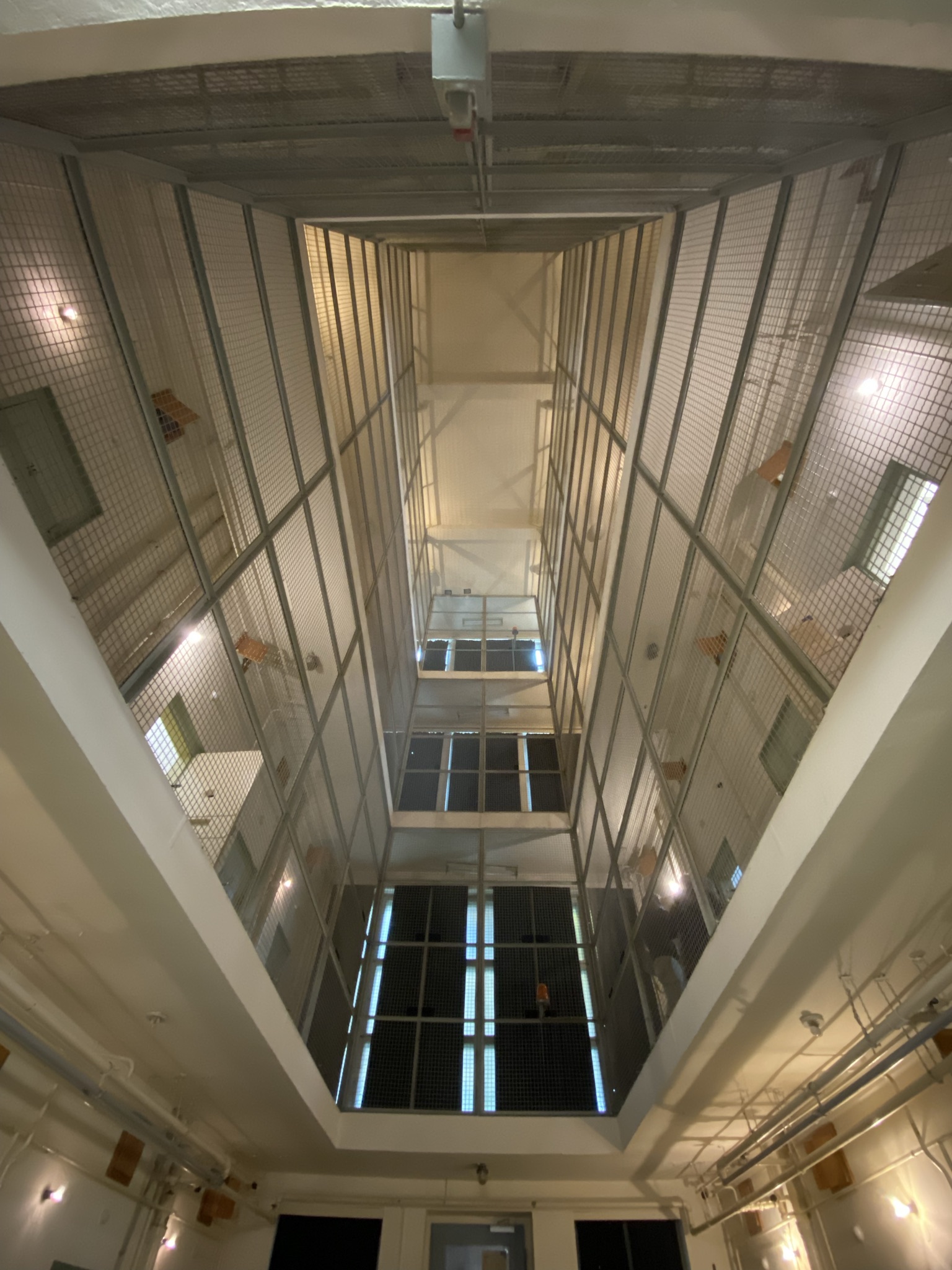Prospective commissioners research GDR history – kick-off in the former Stasi investigation prison in Dresden
On the day following German Unity, a group of Saxon students from the police academy made their inaugural visit to the Bautzner Straße memorial in Dresden as part of the “zusammen.HALT” project. The date drew the focus of the project day to the period of social upheaval in East Germany since 1989. The prospective police executives were given a differentiated picture of how attempts were made in the GDR to establish conformity, even under duress, and how restrictive and repressive measures limited citizens’ individual rights to freedom. Further study work at the Saxon Police College in Rothenburg will also focus on the Dresden October Days of 1989. The meeting is the start of a new long-term cooperation between the Saxon Police College and the Bautzner Straße Memorial and part of the new project “zusammen.HALT” together with the Dresden association Kultur Aktiv.
“Through the close cooperation with the Saxon Police University, we will be able to better adapt our educational offers to the needs of this important target group – for example, develop a role play on the transformation period that also addresses the actions of the police in autumn 89,” said Uljana Sieber, head of the Bautzner Straße Memorial. Police councillor Sven Fischer, head of the Dresden-Nord police station, emphasised the importance of understanding historical contexts for value-based police training and at the same time presented ideas for a Dresden police museum. In a subsequent discussion with contemporary witnesses, Chief Superintendent Lutz Wodarsch impressively described his time with the riot police of the GDR, his deployment in October 1989 at Dresden Central Station, among other places, and his later insights: “The GDR was my ideal world.” However, when his company commander talked about shooting, the young man refused: “I won’t do it!”. What followed was a gradual and long process of critically questioning the GDR system. This individually experienced dichotomy of a police officer who also personally experienced the “Wendezeit” while on duty will continue to occupy the prospective commissioners. In addition, the relationship between the People’s Police and the Ministry for State Security (MfS) as well as the October 1989 events between escalation and the “Dresden Model” of dialogue were discussed. In particular, the topic was 8 October 1989, when demonstrators on Prager Straße began talking to the police and the “Group of 20” was formed. This path led from the days of violence to a peaceful revolution.
“zusammen.HALT” works with many local actors, young people and contemporary witnesses, but also with other partners from Saxony and the renowned organisations “European Solidarity Centre” (Gdańsk, Poland) and “Post Bellum” (Prague, Czech Republic). “This way we can bring our international perspective to the table,” says Simon Wolf, managing director of Kultur Aktiv and the impetus behind the project. “The GDR was part of the ‘Eastern Bloc’, the ‘Wende’ part of a pan-European transformation,” Wolf continues.
The project “zusammen.HALT” is run by the Bautzner Straße Memorial and in cooperation with Kultur Aktiv. It is funded by the federal programme “Jugend erinnert” to come to terms with the injustices of the GDR and will run until the end of 2023.
Press contact
Marcus Oertel, marcus.oertel@kulturaktiv.org, +49 163 1706227
Contacts to the project participants can be arranged for reports, interviews or queries.
Further information
- https://kulturaktiv.org/zusammen-halt-foerderung-bewilligt/
- https://www.stsg.de/cms/stsg/aktuelles/gedenkstaette-bautzner-strasse-dresden-und-kultur-aktiv-ev-vermitteln-mit-projekt
Picture material



